Efficient Multi-Species Serum Proteomics: Evaluating the Performance of the Minute™ Kit Against Conventional Depletion Methods
Share
(Invent Biotechnologies Inc.)
Peng et al. conducted a systematic study (A cross-species proteomic assessment of cost-effective platforms for depleting high-abundant proteins from blood serum. BMC Methods 2025, 2(1), 21.) to evaluate serum protein depletion methods across multiple animal species, addressing the common limitation that most commercial kits are designed for human samples. Their work highlights how different platforms perform in terms of depletion efficiency, proteome depth, cost, and ease of use. The following summary emphasizes the unique multi-species scope of the study and the comparative performance of the Minute™ kit
High-abundance proteins such as albumin and immunoglobulins dominate serum proteomes, masking lower-abundance proteins critical for biomarker discovery. Most depletion technologies have been designed for human samples, leaving a gap for cross-species proteomics where animal models are essential. This study systematically compared four depletion strategies across five species—mouse, chicken, dog, goat, and guinea pig—providing one of the first broad multi-species benchmarks.
The evaluated platforms were: (1) Norgen ProteoSpin™ kit (ion-exchange based), (2) Thermo Pierce Albumin Depletion Kit (human-specific immunoaffinity), (3) Minute™ Albumin Depletion Reagent (solubility/precipitation-based), and (4) perchloric acid (PerCA) precipitation (a low-cost, in-house method). Each was tested for efficiency of albumin/IgG removal, number of proteins identified by LC-MS/MS, reproducibility, and overall cost per sample.

Key Findings
- Cross-species applicability: Immunoaffinity kits optimized for human serum (Thermo) performed poorly in nonhuman species, often showing minimal depletion. In contrast, non-species-specific chemistries (Minute, Norgen, PerCA) consistently reduced albumin across all five species.
- Albumin depletion: The Minute kit achieved the highest albumin depletion efficiency overall, with good reproducibility across species. IgG depletion remained inconsistent for all methods.
- Proteome depth: In terms of total proteins detected, Norgen > Minute > PerCA > Thermo. Norgen’s ion-exchange chemistry yielded the greatest number of identifications, but the Minute kit still significantly improved protein detection relative to undepleted controls and outperformed Thermo in every species.
- Cost: PerCA was the cheapest at about $0.25 per sample but required in-house optimization. The Minute kit cost ≈ $1.50 per sample, markedly lower than Norgen (~$11.50) and Thermo (~$15.70). Thus, Minute strikes a balance between economy and performance.
- Ease of use: Commercial kits (Minute, Norgen, Thermo) provide standardized reagents and protocols, aiding reproducibility. The Minute kit’s solubility-based approach is simple and fast, avoiding the species-specific limitations of antibody-based methods. PerCA, while very inexpensive, requires more handling and may vary between labs.
Conclusion
This cross-species evaluation demonstrates that the Minute kit offers an effective compromise of cost, speed, and experimental simplicity. It provides strong albumin depletion across multiple species, enables improved proteome coverage compared to untreated serum, and is substantially more affordable than traditional commercial kits. While Norgen can deliver higher overall proteome depth, the Minute kit’s low cost and ease of use make it a practical choice for laboratories conducting comparative proteomics across human and animal models.
